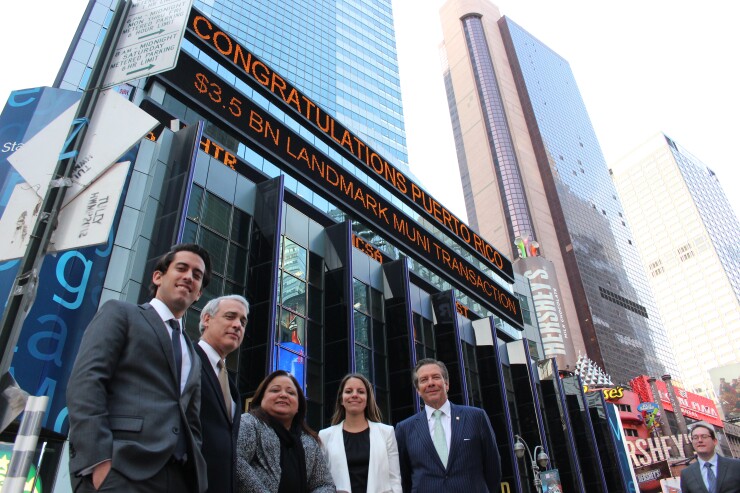Four of the biggest U.S. banks are challenging the Puerto Rico Oversight Board’s request for information about Puerto Rico bond payments from 2013 to 2017, which may be used to help claw back money from bondholders.
On Friday U.S. Bank N.A., Bank of America, and Bank of New York Mellon filed objections to the board’s earlier motion that they be compelled to release information about the payments and the related bondholders. In addition BNY Mellon put a letter from JPMorgan signed into evidence on Friday indicating that JPMorgan also opposes the motion.

Since January the board has filed successive motions challenging the validity of general obligation, Public Building Authority, and Employees Retirement System bonds from as early as fiscal year 2009. On April 2 the board filed a motion in the Title III bankruptcy case indicating that it would seek to claw back money that these bonds paid to bondholders from May 2013 to May 2017.
Since at least April 2 the board has been trying to quickly collect the names, addresses, amount of money, dates of transfers, and CUSIP numbers connected to the transfers from five “participant holders” financial firms. These firms include the four objecting firms mentioned above to the collection and Goldman Sachs.
As of Friday afternoon Goldman Sachs hadn’t filed an objection. The firm didn’t immediately respond to a request for a comment.
In the board’s April 2 motion it asked the judge to give the firms until April 19 to provide the information. Title III Judge Laura Taylor Swain has handed over the issue to Magistrate Judge Judith Dein to decide.
In their objections and in JPMorgan’s letter the firms make similar arguments against providing the information. All four firms have called for the judge to reject the board’s motion.
All the firms noted that this information is normally considered confidential. BNY Mellon said that there were national and state laws barring disclosure of the information.
Even if BNY Mellon were to somehow decide to release the information, it said it would be legally bound to notify the customers whose information is being sought and give them a chance to object to the release.
All the firms said the time period that they’ve been given to provide the information is too short.
BNY Mellon said that any court order requiring the release of the information should explicitly release the firm from liability for the release.
Several firms said if they are to be ordered to release the information, they should be given more time to compile it. They also said that the board should reimburse them for the costs of collecting the information.
Some of the firms said the information should only be released under to-be-determined confidentiality conditions.
In its letter JPMorgan to the Oversight Board’s lawyers, JPMorgan’s lawyer wrote: “Given the expedited briefing schedule and JPMorgan’s lack of local counsel admitted in the District of Puerto Rico, JPMorgan requests that you inform the court of JPMorgan’s objections in your reply papers filed in connection with the motion.”
The transfers of the bonds from the firms weren’t necessarily to the final owners of the bonds, Chapman Strategic Advisors Managing Director James Spiotto said. They could have also been to brokers and nominees who, in turn, distributed them to bondholders. The board’s quest to find who was paid is “like peeling an onion and one’s never really done until one gets to the middle.”





